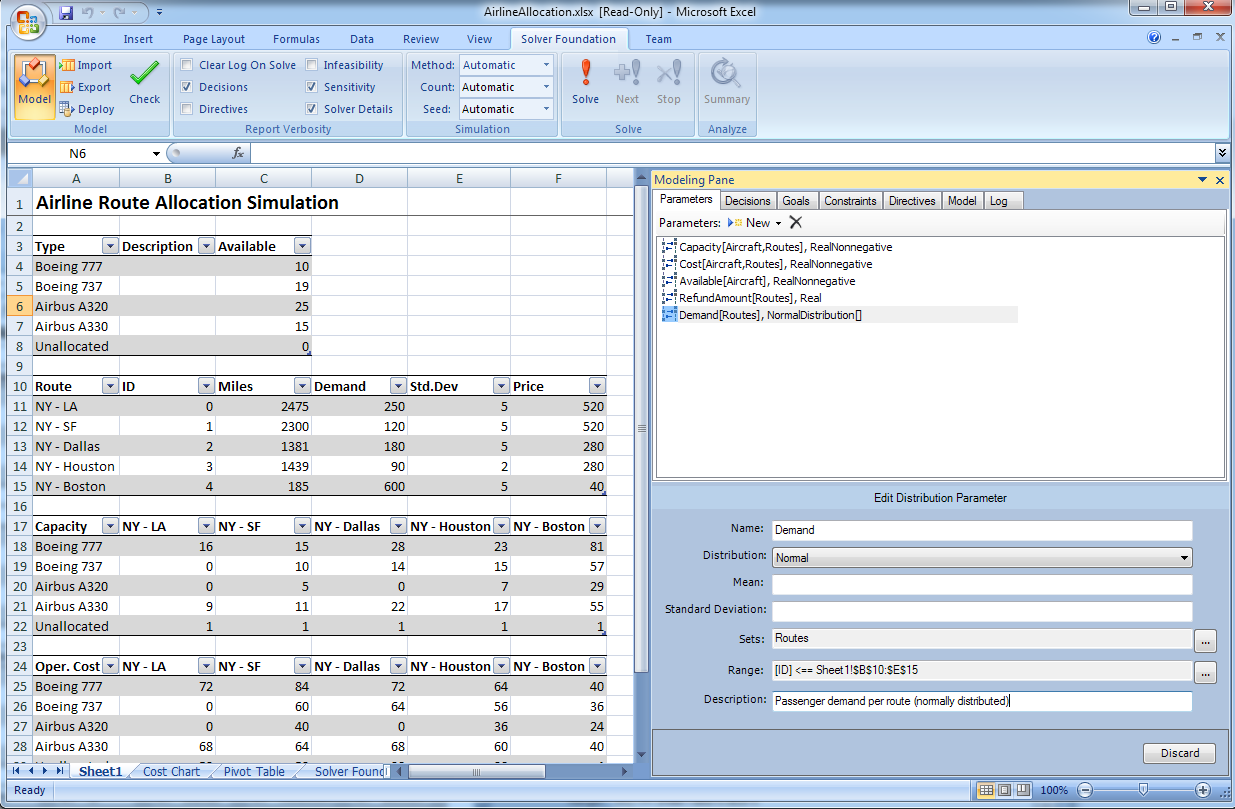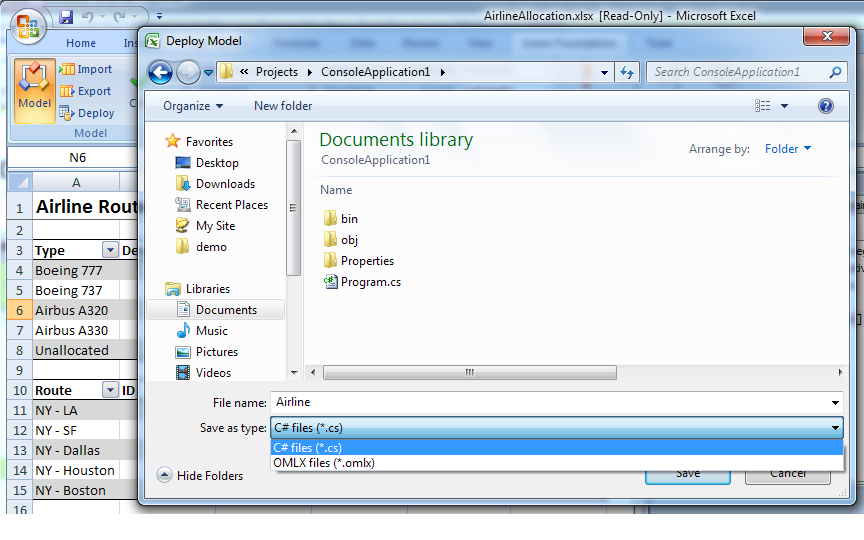Announcing Solver Foundation 2.0
I'm pleased to announce the release of Solver Foundation 2.0, available at solverfoundation.com. We've added capabilities that allow Solver Foundation to solve important categories of optimization problems, improved the performance and stability our existing solvers, and improved our Visual Studio and Office tools to make model building and analysis easier. Here are a few of the highlights:
Excel 2007 add-in. We have completely overhauled the Excel 2007 add-in to make it easier to build, debug, and deploy models. Here is a screenshot from the new add-in:

As you can see, the building blocks of a model (Parameters, Decisions, Goals, Constraints) are built through a more task-centered user-interface, reducing the need for hand-coding OML. Data binding has been simplified, and decision (output) data binding is now supported. Models can include random parameters and recourse decisions to build stochastic models. Finally, the add-in now features the ability to deploy models directly to C# (for use within a Visual Studio project) or to OMLX (for use within SharePoint for server-side calculation). We're trying to simplify the modeling process and bridge the gap between modelers, developers, and business decision makers. Export to C# is this easy:

Simulation and stochastic programming. I previewed our stochastic modeling and solving features in a previous post. It is now possible to include random parameters in OML or SFS code to build stochastic models. Solver Foundation includes powerful sampling engines and decomposition techniques to solve large stochastic models quickly, and provides reporting information that tells you how the uncertainty affects the model.
MIP performance improvements. The new Gurobi 2.0 solver is included as the default MIP solver in Solver Foundation. The Gurobi solver's performance and functionality has been improved in a number of important ways, as described here. The combination of Solver Foundation Services' clean, powerful managed code API and Gurobi's world-class MIP solver gets even better in our 2.0. Our own in-house, purely managed MIP solver has been greatly improved as well.
Second Order Conic Programming. As I mentioned in this post, Solver Foundation 2.0's interior-point solver is now capable of solving large-scale second order conic programming models. SOCP models contain nonlinear conic constraints and are often countered in robust optimization and financial models.
Constraint Solver improvements. We have developed new metaheuristics and global constraints for our CP solver in conjunction with the gang in MSR Cambridge. Watch Lengning's blog for more details.
F# integration. We've heard a lot of positive noises about our F# integration - it's better in 2.0. Our F# optimization DSL has been improved and now incorporates units-of-measure as described in this post. Special thanks to the F# team for their help on this important piece of the puzzle.
And more. Submodel support, better SOS1/SOS2 support, improved reporting, improved model analysis and error messages, more solver plug-ins, better performance and memory usage across the board.
The release of Solver Foundation 2.0 is the culmination of one year of hard work by the team. I hope you will give it a try (the Express version is freely available) and provide your feedback either through the blog or through our MSDN forum. Getting this stuff right - and covering the scenarios that people care about - is hard work and it takes time. We've come a long way in a year, but there's so much more we want to do. As always, the team appreciates honest feedback, good and bad. We're serious about listening to that feedback to make Solver Foundation better.
Comments
- Anonymous
November 02, 2009
The comment has been removed - Anonymous
November 03, 2009
Hi Seth, There is an overview document here: http://code.msdn.microsoft.com/solverfoundation/Release/ProjectReleases.aspx?ReleaseId=1799 If you want detailed documentation, I suggest you download the (free) Express edition, available on the same page. The installation comes with a bunch of documentation, covering SFS, OML, simulation, and solver programming. Nathan